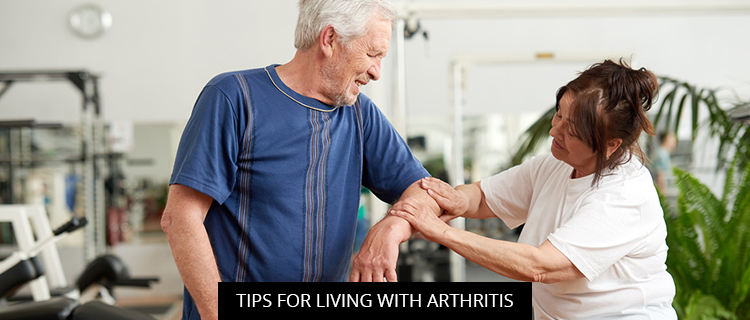While arthritis can affect people of all ages, it is something that many older adults struggle with and that can affect quality of life. Stiff, painful joints can make moving around and doing daily tasks more difficult. While your first response may be to slow down and stop doing things you enjoy because of arthritis, there are many ways to reduce symptoms and remain active. Continuing to be physically active and exercise joints is actually one way some people find relief.
Taking medication to reduce inflammation and stiffness is one option. Talk to your doctor about whether medication is a good choice for you and how it can help. In combination with other strategies, certain drugs can help you keep moving with less pain.
Exercise every day to stretch your muscles and strengthen joints. Being sedentary can make your muscles tighter which can put even more strain on your joints. Exercises such as swimming, biking, walking, and yoga are gentle, low-impact options. Regular exercise can also help with weight management; excess weight can put stress on hips, knees, back, and other joints.
Try natural therapies such applying cool compresses or heating pads to painful joints. This can help to reduce inflammation and increase circulation. Taking a warm bath or shower first thing in the morning can help too. Figure out what works best for you and how your body responds to heat or cold in different situations.
Physical therapy is another natural option. A physical therapist can teach you exercises to safely work your joints, gently strengthen and stretch muscles, improve flexibility and balance, and overcome challenges of living with arthritis.
Some seniors find that diet has an impact on their arthritis. Too much sugar, processed carbohydrates, trans or saturated fats, or MSG can trigger inflammation. However, eating foods such as fish, cherries, low-fat dairy, broccoli, oranges, kidney beans, and green tea may decrease inflammation and provide some relief. There is no specific diet for arthritis, but try different foods and see how you feel.
Protect your joints by avoiding activities that cause a lot of pain or have high impact. Work with a physical therapist or your doctor to find safer activities or alternatives so that you can stay active and do the things you enjoy without increasing your risk of pain and discomfort. Be smart and rest when you need to as well.
Hire in-home help to assist with activities that are challenging. A caregiver can help with meal preparation, light housekeeping, writing correspondences or notes, organizing belongings, and moving about. They can also provide medication and appointment reminders so that you can stay on top of your health. An in-home caregiver can come as frequently as you need and provide support with a wide range of activities that make living with arthritis easier.
Arthritis doesn’t have to keep you from living a fulfilling and enjoyable life. If you or a loved one requires skilled nursing care but can safely transition into the California Assisted Living Waiver program, please contact Guidant Care Management at 844-494-6303 to determine if you qualify. We will assist you on how to apply for the assisted living waiver. We’ll work with you to ensure seniors receive the care they need to maintain as much independence as possible.

